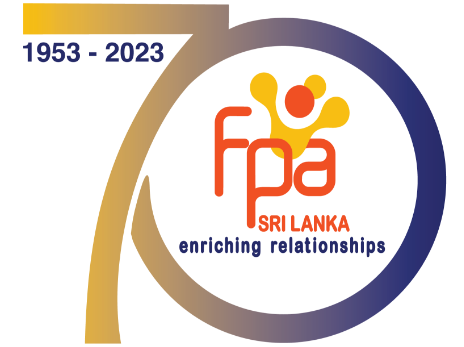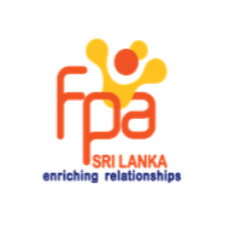HIV & AIDS: Causes, Symptoms, Treatment & Prevention

Human Immunodeficiency Virus (HIV) and acquired immunodeficiency syndrome (AIDS) remains a significant global health concern, affecting millions of individuals worldwide. Whist remarkable progress has been made in treatment and prevention, HIV/AIDS continues to pose serious challenges in various regions around the world, including Sri Lanka. This comprehensive overview of the intricacies of HIV/AIDS in Sri Lanka encompasses key facts and information, transmission modes, risk factors, testing and counselling options.
Despite the relatively low prevalence compared to other countries in the region, HIV /AIDS remains a crucial public health issue in Sri Lanka, and the goal is to end AIDS by 2030.
HIV/AIDS is primarily transmitted through three main routes:
- Unprotected Sexual Intercourse: Engaging in sexual activity without the use of condoms poses a significant risk for HIV transmission as the virus can be transferred through bodily fluids.
- Sharing Needles or Syringes: Sharing needles or syringes with an HIV-infected person is another common mode of transmission, particularly amongst individuals who inject drugs.
- Mother-to-Child Transmission: HIV can be transmitted from an HIV-positive mother to her child during pregnancy, childbirth, or breastfeeding.
Risk Factors for HIV Infection
Several factors increase the likelihood of HIV infection in Sri Lanka:
- Unprotected Sexual Behaviour: Engaging in unprotected sexual intercourse with multiple partners or an HIV-infected individual significantly elevates the risk of HIV transmission.
- Sharing Needles or Syringes: Sharing needles or syringes among drug users poses a substantial risk for HIV transmission.
- History of Sexually Transmitted Infections (STIs): Having a history of STIs increases the susceptibility to HIV infection due to weakened mucosal membranes.
- Weakened Immune System: Individuals with compromised immune systems due to conditions like tuberculosis or certain medications are at heightened risk of HIV infection.
An HIV infection progresses through the following stages if left untreated.
Some people will experience a brief flu-like illness such as fever, headache, and rash usually two to four weeks after the initial infection with HIV. This is the earliest stage of infection, which is known as the acute stage or Seroconversion illness. However, for some people, in the acute stage of infection, the infection might not have any obvious signs and symptoms, or the illness may be so mild that it goes unnoticed, or mistake it for the flu.
The level of HIV in the blood can be very high during the acute HIV infection or seroconversion stage, which greatly raises the risk of HIV transmission. As a result, if someone suspects they may have acquired an infection, they should act before symptoms show. If treatment is initiated at this point, a person may see significant improvements in their health.
A chronic HIV infection, also referred to as an asymptomatic HIV infection or clinical latency, is the second stage of the HIV infection. The virus continues to multiply in the body at this stage but slowly destroys the immune system reducing the ability to fight disease. It's possible for someone with a long-term HIV infection to exhibit no symptoms at all and remain asymptomatic. Without treatment, chronic HIV infection typically takes eight - ten years or more to progress to AIDS, though in certain cases, it happens sooner.
The longer a person with HIV goes without treatment, the higher their chance of contracting infections that their compromised immune system cannot fight, such as some types of cancer. This is the advanced stage of HIV, characterised by a high viral load and easy HIV transmission to others. People with AIDS usually live for a few years if they receive no treatment.
Prompt testing for HIV/AIDS is crucial if any of these symptoms manifest, as early detection allows for timely treatment initiation.
Testing and Counselling for HIV/AIDS in Sri Lanka
A few types of screening tests are used for initial testing. If it becomes positive, further confirmatory tests are carried out. When the confirmatory test is positive, the patient is informed of their HIV-positive status through post-test counselling.
If a person tests positive, they are connected to HIV care to start treatment as soon as possible. If you test negative, you are provided with the information needed to take steps to prevent getting HIV in the future.
HIV testing is confidential and readily available free of charge in Sri Lanka. Testing services are accessible at government hospitals, clinics, and non-governmental organizations (NGOs).
HIV self-testing is also an option. Self-testing allows people to take an HIV test and find out their results in their own home or other private location. With an HIV self-test, you can get your test results within 20 minutes. Self-testing kits can also be obtained by calling the government hotline at 0112667163 or through the Know4sure web-based online reservation system, as they are delivered island-wide.
FPA offers counselling services, support, information, and guidance to individuals who are HIV-positive or at risk of HIV infection.
For more information on counselling services, contact the Alokaya Counselling Centre on 077 9895252. To book an HIV/STD test – 077 955 2979.
What measures may an individual take to prevent acquiring HIV infection?
- Consider getting tested for HIV. Prior to engaging in sexual activity, discuss HIV testing with your partner and be tested.
- Consistent Condom Use: Consistent and correct condom usage during sexual intercourse is paramount in preventing HIV transmission.
- Eliminating Needle Sharing: Discouraging and preventing the sharing of needles or syringes among drug users.
- Prompt STI Treatment: Seeking prompt and effective treatment for STIs is essential to reduce the risk of HIV infection.
- PrEP (Pre-exposure Prophylaxis): Individuals at high risk of HIV infection can benefit from PrEP, a preventive medication that reduces the likelihood of HIV acquisition.
Post-Exposure Prophylaxis following Sexual Exposure (PEPSE) - PEPSE is a course of anti-retroviral drugs that can be administered to prevent HIV infection after unprotected sexual contact with an HIV-infected partner. It can be used if you have unprotected sex or if the condom breaks. The treatment course should be begun as soon as possible after the risky exposure, ideally within 24 hours and not later than 72 hours after.
What measures may an HIV-positive person take to reduce the transmission of HIV to others?
- Taking HIV medications/antiretroviral therapy (ART) exactly as prescribed. ART cannot cure HIV, however treatment can reduce the amount of HIV in the body (also known as the viral load). One of the key objectives of ART is to reduce a person's viral load to undetectable levels. A viral load that is undetectable suggests that the level of HIV in the blood is too low to be detected by a viral load test. People with HIV who have an undetectable viral load have essentially no risk of transmitting the virus through intercourse with an HIV-negative partner.
- During intercourse, use condoms correctly and consistently.
- Discuss taking PrEP with your partner.
- Do not share needles, syringes, or other drug equipment.
Treatment for HIV/AIDS
Antiretroviral therapy (ART) is the name given to HIV treatment. ART entails taking a daily combination of HIV medications (referred to as an HIV treatment regimen). Antiretroviral therapy (ART) has revolutionized the treatment of HIV/AIDS, preventing the spread of HIV to others, effectively suppressing the virus and enabling individuals with HIV to live long and healthy lives.
ART is available free of charge in Sri Lanka. Whilst ensuring access to treatment for those in need, confidentiality is prioritized. There are 30 ART centres established island-wide for service provision.
Living with HIV/AIDS
With proper adherence to treatment regimens and regular medical monitoring, individuals living with HIV/AIDS can maintain their health and well-being. Regular follow-up appointments are essential to assess treatment efficacy and address any potential complications.
Resources for People Living with HIV/AIDS
Several resources are available to support individuals living with HIV/AIDS, for more information, contact The Family Planning Association of Sri Lanka on 011 255 5455, 077 955 2979 or 076 588 4881. All the healthcare staff are trained, and confidentiality is a priority.
Bibliography
Fact Sheets. (n.d.). Retrieved from HIV.Info.NIH.Gov : https://hivinfo.nih.gov/home-page
Lanka, M. o. (n.d.). National STD/AID Control Programme Sri Lanka. Retrieved from https://www.aidscontrol.gov.lk/
.png)



